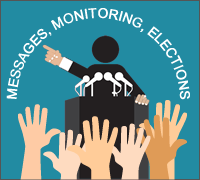|
||||||||||||||||
Publications Analysis of Electoral Legislation under the Project "Early Parliamentary Elections 2017: Civil Monitoring"
On March 26th 2017, elections for the 44th National Assembly are held. For the last 4 years, these are the third early parliamentary elections in Bulgaria, which, unlike the previous two, are not conducted under entirely new electoral rules. The Constitution and the Electoral Code define the basic legal framework for the elections in our country. These include the Law on Political Parties, the Law on Meetings and Marches, the Law on Administrative Offenses and Penalties and the Criminal Code, as well as the decisions of the Central Electoral Commission (CEC). The current analysis is about the legislative changes in the Electoral Code. The legislative amendments made to the Electoral Code by the 43rd National Assembly do not concern only a single type of choice. They are, above all, the result of agreements and political bargaining within the ruling and supportive parliamentary majority. They are focused on seeking out political effects and getting dividends, and are part of propaganda, not a result of in-depth expertise to improve the electoral process and raise citizens' trust. We can hardly talk about any preliminary impact assessment of the proposed and adopted changes to the electoral legislation. Three are the main elements of the changes to the electoral rules, affecting the election of MPs: the mandatory vote, the "I do not support anyone" box, and voting abroad (in particular, the polling stations). You will find the entire report here. |
||||||||||||||||

